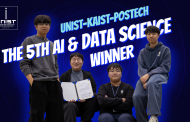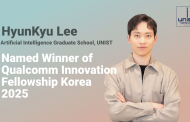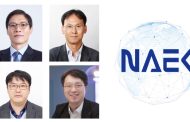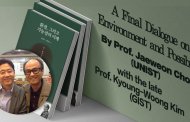Two early-career researchers at UNIST have been selected for the prestigious ‘Post-Doc Growth-Oriented Research Support (name tentative)‘ program, jointly funded by the Ministry of Education and the National Research Foundation of Korea (NRF). Each researcher will receive up to 70 million KRW annually for a maximum of three years to support their innovative research endeavors.
This program aims to foster the next generation of scholars and strengthen national research capabilities by providing sustained funding and mentorship. It is designed to support promising postdoctoral researchers in developing into independent investigators through multi-year research grants, guided by senior faculty mentors.
Eligible candidates are those within seven years of earning their doctoral degrees or postdoctoral researchers under 39 years of age. This year, a new ‘Independent Type‘ category was introduced, attracting 54 applicants nationwide. Among them, UNIST researchers Jang Hak-sun and Kim So-yeon have been selected to conduct ambitious, cutting-edge projects.
Dr. Haksoon Jung from the Department of Electrical Engineering at UNIST is engaged in interdisciplinary research combining electrical and chemical engineering. He plans to develop advanced high-heat-dissipation semiconductor packaging technologies utilizing artificial intelligence and 3D printing. His core focus is on realizing complex three-dimensional meta-structures that were previously unachievable with conventional methods, integrating fluid cooling techniques to minimize thermal expansion. This work aims to enhance packaging solutions for high-power semiconductors used in electric vehicles and energy storage systems.
Commenting on his research, Dr. Jung stated, “With the rapid growth of the high-power semiconductor market, developing next-generation packaging technologies is more important than ever.” He further noted, “I aspire to establish a collaborative ecosystem among academia, industry, and research institutes to foster an advanced semiconductor packaging industry.”
Dr. So-Yeon Kim from the Department of Biological Sciences at UNIST has conducted extensive research on mitochondrial function and metabolic diseases within the field of life sciences. Her current project focuses on analyzing the role of mitochondrial chaperone TRAP1 in retinal diseases, particularly examining its impact on angiogenesis and immune cell activation, with the goal of developing new therapeutic strategies.
Dr. Kim expressed her motivation, stating, “Retinal diseases can lead to blindness, yet current treatment options are limited. I hope to deepen our understanding of intractable diseases and contribute to the development of long-term treatment solutions.”
This selection highlights UNIST’s commitment to nurturing innovative researchers who will lead future technological and medical advancements.












